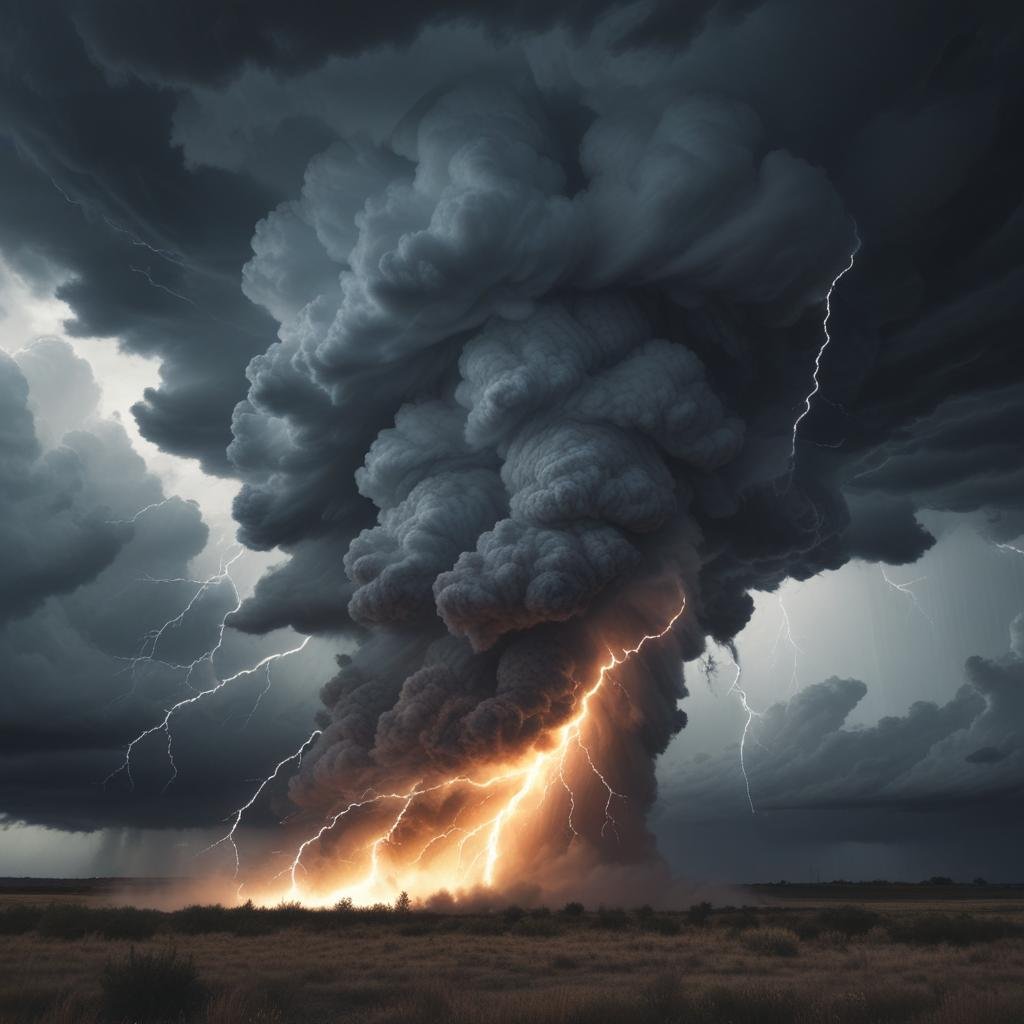The turbulent history of “shitstorm”
Few terms capture the essence of chaotic mayhem and utter calamity quite like “shitstorm.” This colorful, if not somewhat crude, expression has become the go-to descriptor for moments of extreme controversy or disaster. But where did this tempestuous term originate, and how did it come to occupy such a unique place in our vernacular? Let’s dive into the whirlwind history and evolution of “shitstorm.”
Origins and Early Usage
The term “shitstorm” appears to have relatively modern origins, with its first recorded use dating back to the 1940s in military slang. Soldiers, those purveyors of some of the most vivid and expressive jargon, used “shitstorm” to describe situations of intense bombardment or overwhelming enemy fire, where chaos and danger reigned supreme. In this context, it was a vivid way to encapsulate the severity and pandemonium of battle. Just imagine a battalion under relentless artillery fire—dust, noise, confusion—and someone yelling, “We’re in the middle of a shitstorm!” It perfectly conveyed the sense of disorder and peril that words like “trouble” or “danger” just couldn’t.
The word gained more widespread usage in the 1960s and 70s, particularly in American English. This period, characterized by social upheaval and political turbulence, provided fertile ground for the term’s evolution. As the world grappled with issues like civil rights, the Vietnam War, and Watergate, “shitstorm” began to appear in literary works and everyday language, often used metaphorically to describe situations that were similarly fraught with disorder and difficulty. It was during this period that “shitstorm” began to cement its place in the lexicon as a term for any scenario characterized by intense trouble or scandal.
Breaking Down the Word
Let’s take a moment to appreciate the construction of the word itself. “Shit,” a robust and versatile expletive, provides a strong foundation. It’s a word that conveys a sense of messiness, unpleasantness, and general disarray. “Shit” is direct and evocative, bringing to mind something fundamentally unpleasant and problematic. Its roots in the Old English word “scite,” related to “scitan” (to defecate), give it an earthy, visceral quality that makes it incredibly effective for conveying a wide range of negative experiences .
The “Shit” Component
“Shit” has been a part of the English language for centuries, evolving from its Old English origins through Middle English, where it was spelled “shiten” or “schiten.” Over time, it has retained its powerful connotations, always relating to something foul or undesirable. It’s a word that people often turn to in moments of frustration or anger because of its blunt, no-nonsense impact. When you say something is “shit,” you’re not mincing words—you’re delivering a punch of negativity that’s hard to ignore.
The robustness of “shit” as an expletive lies in its ability to cut through politeness and strike at the heart of what’s wrong. Whether used to describe a bad day, a poor performance, or something literally disgusting, “shit” is a word that leaves no room for ambiguity. It’s straightforward, unpretentious, and brutally honest.
The “Storm” Component
Now, let’s add “storm” to the mix. Storms are inherently chaotic and destructive. They’re natural events characterized by unpredictability and power, capable of causing significant disruption and damage. The word “storm” itself comes from the Old English “storm,” meaning a violent disturbance of the atmosphere. When you think of a storm, you think of thunder, lightning, strong winds, and torrential rain—all forces that are beyond human control and often overwhelming.
By combining these two elements—”shit” and “storm”—we get a word that conveys a scene of utter havoc and disorder. It’s not just a bad situation; it’s a bad situation amplified to the extreme. A shitstorm is a scenario where everything that can go wrong does go wrong, all at once, with an intensity that makes it feel like you’re caught in a tempest of fecal matter. It’s messy, it’s unavoidable, and it’s hitting you from all directions.
Cultural and Social Impact
As the term “shitstorm” evolved, its usage spread beyond the battlefield and into broader cultural and social contexts, reflecting the dynamic and often tumultuous nature of modern life. By the 1980s and 90s, “shitstorm” had become a common way to describe public scandals, political controversies, and media frenzies. It was particularly apt for the age of 24-hour news cycles and the burgeoning internet, where events could spiral into uncontrollable chaos with alarming speed.
The Age of Media Frenzy
With the rise of cable news networks and the internet, the pace at which information—and misinformation—spread increased dramatically. In this hyperconnected environment, “shitstorm” became a fitting term to describe the rapid escalation of public uproar and media coverage surrounding controversial events. From political scandals to celebrity missteps, the term captured the essence of a situation that quickly snowballs out of control, engulfing everyone in its path.
For example, the political landscape of the late 20th and early 21st centuries provided numerous instances where “shitstorm” was an apt descriptor. The Watergate scandal, the Monica Lewinsky affair, and more recently, various social media controversies, all generated a level of public and media scrutiny that could be likened to a tempest of chaos and indignation. Each of these events demonstrated how quickly a relatively contained issue could explode into a full-blown crisis, drawing intense public interest and widespread media coverage.
Social Media: The Perfect Storm
The rise of social media in the 2000s gave “shitstorm” a new lease on life. Platforms like Twitter, Facebook, and Instagram provided fertile ground for rapid, widespread outrage and backlash. A single misstep by a public figure or company could ignite a digital shitstorm, spreading across the globe in a matter of minutes. The term became synonymous with the kind of viral, often vitriolic reactions that can engulf social media, turning minor issues into full-blown crises.
Social media amplifies every aspect of a shitstorm, from the speed at which it unfolds to the sheer volume of participants involved. Hashtags, trending topics, and viral posts ensure that once a shitstorm starts, it is almost impossible to contain. Companies and public figures have had to learn how to navigate these turbulent waters, often employing crisis management strategies to mitigate the damage. Yet, despite their best efforts, the unpredictable nature of social media means that a shitstorm can strike at any time, with little warning and devastating impact.
Political and Media Discourse
In political and media discourse, “shitstorm” has become a go-to term for describing scandals that dominate headlines and capture public attention. Whether it’s a political scandal, a corporate blunder, or a celebrity misadventure, the word aptly conveys the sense of uncontrollable chaos and intense public scrutiny that accompanies such events.
For instance, during the 2016 US presidential election, numerous events were described as “shitstorms” due to the unprecedented levels of controversy and media coverage. From leaked emails to inflammatory remarks, the election cycle was a continuous barrage of scandal and outrage, perfectly encapsulated by the term “shitstorm.” Politicians, celebrities, and corporations alike have found themselves at the center of these shitstorms, struggling to navigate the turbulent waters of public opinion and media scrutiny.
The Sociopolitical Impact
“Shitstorm” has also had a significant impact on sociopolitical discourse. It serves as a powerful metaphor for the volatility and unpredictability of public opinion in the digital age. As governments and institutions increasingly operate in a transparent and highly scrutinized environment, the ability to anticipate and manage shitstorms has become a crucial skill. Public relations professionals, politicians, and corporate leaders must navigate the delicate balance between transparency and control, understanding that even the smallest misstep can trigger a shitstorm of epic proportions.
Academic and Linguistic Perspectives
Academics and linguists have delved into the term “shitstorm” to understand its usage, significance, and impact on modern language. It’s a prime example of how vivid, colloquial expressions can capture complex social phenomena in a way that more formal language often cannot. The term’s potency lies in its ability to convey not just the occurrence of a chaotic event but the emotional and social turbulence that accompanies it.
Linguistic Analysis
Linguists view “shitstorm” as a fascinating case study in the evolution of language. The term combines two powerful words to create an evocative and effective descriptor for chaotic situations. According to linguistic theories, compound words like “shitstorm” are often more than the sum of their parts. They carry connotations and emotional weight that single words cannot. This phenomenon is known as “semantic shift,” where the meaning of the compound is influenced by the cultural and social context in which it is used.
In the case of “shitstorm,” the combination of “shit” and “storm” creates a vivid mental image of an uncontrollable and highly unpleasant situation. This imagery makes the term particularly effective in communicating the severity and complexity of the scenario it describes. Additionally, the word’s shock value and colloquial nature make it memorable and impactful, ensuring it stands out in both spoken and written communication.
Cultural Reflections
From a cultural perspective, the adoption and widespread use of “shitstorm” reflect societal attitudes towards conflict and crisis. The term’s rise to prominence in the late 20th and early 21st centuries coincides with an era of increasing transparency and instant communication. As social media and 24-hour news cycles became integral parts of daily life, the public’s appetite for sensationalism and scandal grew. “Shitstorm” encapsulates this cultural shift, providing a succinct way to describe the intense scrutiny and rapid escalation of controversies in the modern era.
Moreover, the term’s acceptance in both formal and informal settings indicates a broader linguistic trend towards incorporating colloquial and even vulgar language into mainstream discourse. This shift highlights a growing tolerance for expressive, albeit crude, language as a means of conveying strong emotions and complex situations succinctly and effectively.
Psychological Implications
Psychologists have also taken an interest in the term “shitstorm,” examining its impact on individuals and groups. The term’s vivid imagery can evoke strong emotional responses, contributing to the intensity of public reactions to crises. When people describe an event as a “shitstorm,” they are not only commenting on the chaos of the situation but also expressing their emotional turmoil and stress. This dual function—descriptive and emotive—makes “shitstorm” a powerful tool in both personal and public communication.
Studies in social psychology suggest that the use of such vivid language can influence perceptions and behaviors. For example, labeling a situation as a “shitstorm” can heighten the sense of urgency and crisis, prompting more immediate and intense reactions from the public and authorities. This effect can be both positive, in terms of mobilizing resources and attention, and negative, by exacerbating panic and conflict.
Sociolinguistic Dynamics
Sociolinguists explore how terms like “shitstorm” reflect and shape social interactions. The word’s usage often signals solidarity or shared understanding among speakers, especially in informal settings. It can serve as a linguistic shortcut that conveys complex social dynamics quickly and effectively. In professional and academic contexts, the adoption of such terms can also indicate shifts in acceptable language norms and the blurring of boundaries between formal and informal communication.
The global adaptation of “shitstorm” underscores its universal appeal and effectiveness. For instance, its adoption into the German language as “Shitstorm” and its recognition as the Anglicism of the Year in 2011 illustrate how powerful and resonant the term is across cultures. This cross-cultural adoption highlights the shared human experience of dealing with chaos and crisis, as well as the utility of expressive language in navigating these challenges.
Conclusion: Embracing the Storm
In conclusion, “shitstorm” is a testament to the power of language to evolve and adapt, capturing the essence of our most tumultuous experiences. From its origins in military slang to its ubiquitous presence in modern discourse, it remains a vivid, impactful term for describing the chaotic storms that occasionally sweep through our lives. So, the next time you find yourself in the midst of a “shitstorm,” take a moment to appreciate the rich history and linguistic flair behind the word, and maybe, just maybe, you’ll weather the storm with a bit more understanding and humor.


